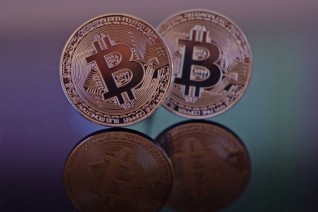Is Bitcoin in a Dangerous Bubble?
The question of whether Bitcoin is in a dangerous bubble is a topic of ongoing debate among investors, economists, and analysts. Let's delve into the perspectives and factors that contribute to this discussion.
Understanding Market Bubbles 📉💭
A market bubble typically refers to a situation where asset prices soar to unsustainable levels, driven by speculative trading and exuberant investor sentiment. Bubbles often precede a sharp decline in prices, leading to significant losses for investors caught up in the frenzy.
Factors Contributing to Bitcoin's Price Volatility 📊🌐
1. Speculative Trading:
- Bitcoin's price has historically been highly volatile, influenced by speculative trading activities rather than fundamental factors such as earnings or economic data.
2. Market Sentiment:
- Investor sentiment plays a crucial role in Bitcoin's price movements. Positive news, regulatory developments, or endorsements from influential figures can drive up prices, while negative news or regulatory scrutiny can trigger sell-offs.
3. Limited Regulation:
- Bitcoin operates in a relatively unregulated environment compared to traditional financial markets. This lack of oversight can contribute to sharp price swings and market manipulation.
4. Store of Value Narrative:
- Bitcoin's narrative as "digital gold" and a hedge against inflation has attracted institutional investors seeking alternative assets. This influx of institutional capital can amplify price volatility.
Arguments for Bitcoin Being in a Bubble 🛑📈
1. Rapid Price Appreciation:
- Bitcoin has experienced periods of rapid price appreciation followed by sharp corrections, resembling bubble-like behavior seen in historical market bubbles.
2. Limited Intrinsic Value:
- Critics argue that Bitcoin lacks intrinsic value and its price is driven primarily by speculative trading rather than underlying utility or cash flows.
3. Historical Comparisons:
- Comparisons to past market bubbles, such as the dot-com bubble or the housing market bubble, highlight similarities in terms of price volatility and speculative fervor.
Arguments Against Bitcoin Being in a Bubble 🚀📉
1. Maturing Asset Class:
- Bitcoin's growing adoption by institutions and corporations suggests increasing acceptance as a legitimate asset class rather than a speculative bubble.
2. Fundamental Use Cases:
- Supporters argue that Bitcoin's utility as a decentralized digital currency and store of value provides fundamental support for its long-term price potential.
3. Scarcity and Demand:
- Bitcoin's fixed supply (21 million coins) and increasing global demand suggest that its price volatility may be a reflection of its emerging market status rather than a speculative bubble.
Conclusion 🌐📊
Determining whether Bitcoin is in a dangerous bubble requires careful consideration of market dynamics, investor behavior, regulatory developments, and fundamental factors. While Bitcoin's price volatility and speculative trading patterns raise concerns about potential bubbles, its growing adoption and utility in the digital economy suggest a nuanced perspective.
Investors should approach Bitcoin and other cryptocurrencies with caution, understanding the risks of volatility and the evolving regulatory landscape. Diversification and a long-term investment strategy can help mitigate risks associated with market bubbles and speculative assets.
Ultimately, whether Bitcoin represents a dangerous bubble depends on individual risk tolerance, investment goals, and the broader economic and regulatory environment shaping its future.





